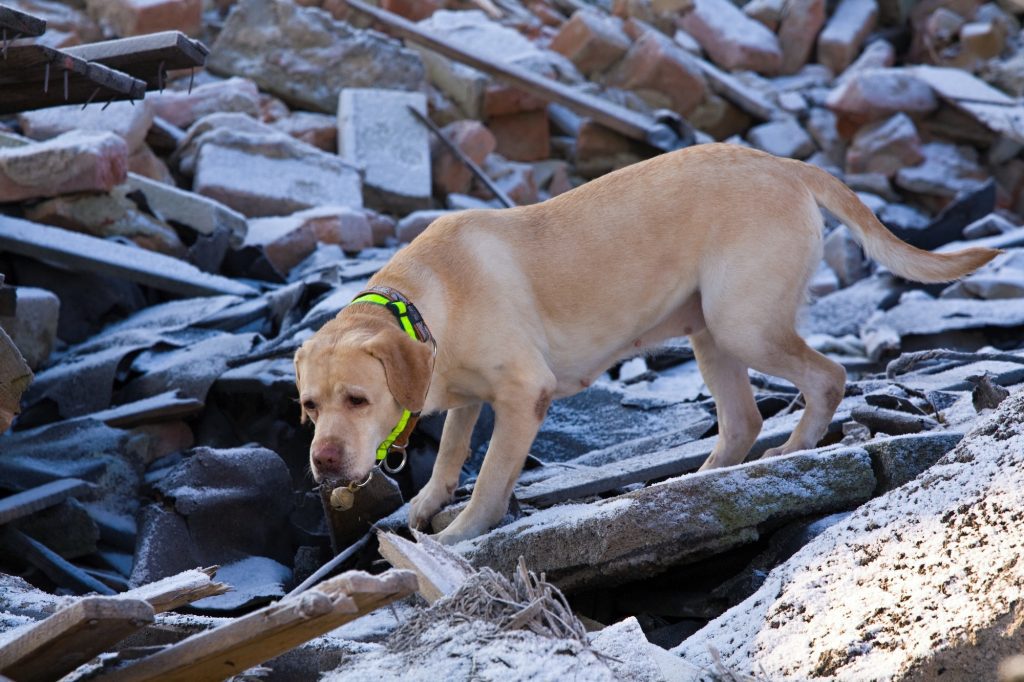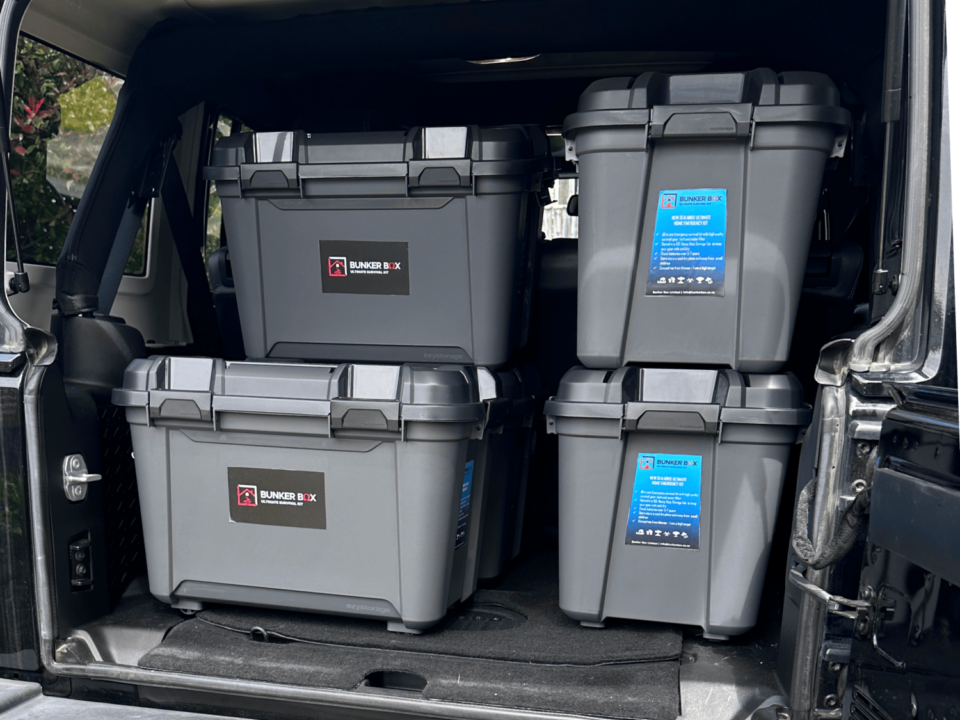Survival Kits & More
May 24, 2023Commercial Emergency Grab Bag
June 20, 2023Because evacuation centres generally do not accept pets except for service animals, you must plan ahead to ensure that your family and pets will have a safe place to stay.
Do your research early. Make a list of pet-friendly places and keep it in your Bunker Box. Call ahead for a reservation as soon as you think you might have to leave your home. Check with friends, relatives, or others outside your immediate area. Ask if they would be able to shelter you and your animals, or just your animals if necessary. If you have more than one pet, you may have to be prepared to house them separately. If you have livestock, ensure that you have a plan in place so that they will be secure, have food, water, medication and shelter.
Prepare for an emergency or disaster with a Pet Survival Kit. After an emergency or disaster you may need to shelter in place; however, food, water and power supply may be disrupted or limited. A Pet Disaster Survival Kit can ensure that you are prepared and can take care of your animal(s) after an event.
Ensure you have on hand sturdy leashes, harnesses, and carriers to transport pets safely and to ensure that your pets cannot escape. A carrier should be large enough for the animal to stand comfortably, turn around, and lie down. Your pet may have to stay in the carrier for hours at a time while you have taken shelter away from home. They may require blankets or towels for bedding and warmth, and other special items. Store extra food and water for at least three days for each pet, bowls, cat litter and litter box, and a manual can opener. Remember the pet’s toys and the pet’s bed, if you can easily take it, to reduce stress.
Put current photos and descriptions of your pets in your Pet Survival Kit to help others identify them in case you and your pets become separated and to prove that they are yours. Attach a permanent disc to your animal’s collar with your name, address and contact number. Microchip all your animals and ensure microchip and dog registration details are up to date. Prepare information on feeding schedules, medical conditions, behaviour problems, and the name and telephone number of your veterinarian in case you have to board your pets or place them in foster care.





